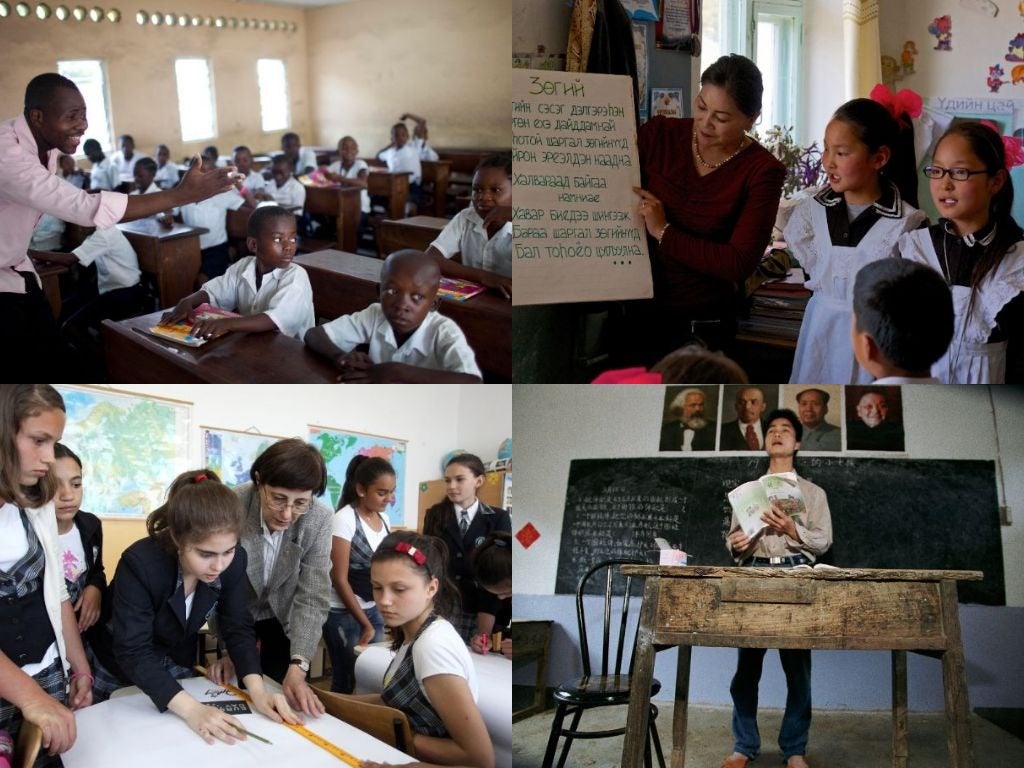
Happy World Teachers’ Day! No part of the school experience has greater potential to set students on a path to success than a great teacher. Likewise, researchers are constantly seeking to learn how education systems can help students learn the most from their teachers. Here are 10 studies from recent months on helping teachers to be their best.
Who coaches the teachers?
- Coaching teachers, 60 studies on: Teacher coaching programs can have big impacts on the quality of instruction and on student learning. But the effects are largest for small programs. However it’s not easy to bring these to scale effectively. (Kraft, Blazer, & Hogan) Here’s a plain-language write-up of the study by two of the authors.
- Coaching teachers at scale: What did I just say? In Kenya, a national program that included teacher coaching and structured lesson plans translated to real learning gains. (Piper, Destefano, Kinyanjui, & Ong’ele)
- Coaching teachers from a distance: We know that individualized coaching can help teachers to be better. But is it too expensive? In South Africa, “virtual coaching model seems to be no less effective than on-site coaching.” (Kotze, Fleisch, and Taylor)
- Providing support to teachers won’t help if the support is terrible: A national teacher professional development (PD) program in China had no impact on student learning. Neither did PD + follow-up. Neither did PD + an evaluation of how well teachers knew the PD content. Why not? “Teachers find PD content to be overly theoretical, and PD delivery too rote and passive, to be useful.” (Loyalka, Popova, Li, and Shi)
- In fact, a lot of national teacher professional development programs don’t look great: A close look at 139 large-scale programs across 14 countries found a large gap between what we know about effective programs and what programs on the ground actually look like. (Popova, Evans, Breeding, and Arancibia)
- Training to teach science: In Argentina, combining short-term teacher training with structured lessons (i.e., clear practical guidance on implementation of science lessons) increased student learning. Adding pedagogical coaches for teachers (coaching again!) improved learning even more, but only for less experienced teachers. (Albornoz et al.)
- The downside of school autonomy: Some advocate for schools having more power to hire and fire teachers. But across 34 high-income countries, school-based hiring of teachers is associated with a bigger gap in teacher quality between advantaged and disadvantaged schools. (Han 2018)
- Teachers losing control: Over the last 15 years, teachers have lost authority about many areas of school governance, in favor of school leaders and government. This includes control over curriculum and pedagogy. What does this mean for the professionalism of teachers? (Jeong and Luschei 2018)
- Attracting even better teachers? In Wisconsin (USA), some districts started paying the highest performing teachers more. Compared to other districts, these performance-pay districts attracted more teachers who were effective at increasing kids’ learning, with the existing teachers exerting more effort. (Biasi 2018)
- Teacher gender and student performance: In China, junior high school students were randomly assigned to teachers. This showed that having a female teacher boosts girls’ math performance. The effect is persistent over time. The boys are unaffected by teacher gender. (Xu and Li 2018)


Join the Conversation